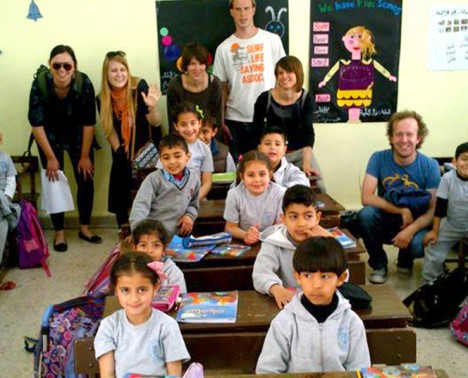There is a prevailing trend in the non-profit sector; an insidious illness emerging from the peroration which often envelopes the area. Increasingly, actors are seeking to force an ill-fitting, rigid formula onto the liquid consistency of human emotions. Success is measured in cold, hard facts; how many adults gained job opportunities as a result of this project? How many children entered higher education? How many volunteers gained a second language? How many women did we successfully emancipate? How many re-tweets of our hashtag?
The approach is driven by undeniably logical factors. Charities are attempting to attract large donors whose manner of assessment is the only one they know; tangible results in return for an investment which they can subsequently sell to their conscious-impoverished clientèle. But this trend is a wind blowing above the ripples on the water, ripples which become swells and eventually waves. But how can one revel in the waves, if one doesn’t notice the ripples from which they are born?
It is these small movements which I am to write about; the unnoticed behaviour of the reserved. I am to tell you that success is not found in numbers, but in the most tender and reserved human behaviour. I am to tell you this because I believe myself to have been lucky enough to be privy to those moments, durable by their existence in my memory, transient by that by that very fact. The European Voluntary Scheme has gifted such experiences to me, but is setting to take them away from others. I write in protest of that trend and to espouse a different approach.
I cannot tell you how many women I have taught whom have subsequently felt emancipated, nor how many of the youth I have taught felt better inclined towards employment. I cannot even tell you how many new words they gained. What I can tell you about is the feeling one gets when a pupil who could not conceive an English greeting, suddenly constructs a sentence from words you had forgot you’d taught her. Or a sense of value when one woman approaches you after class and tells you that she is a housewife, bound by the rules of her conservative partner and by the rigours of motherhood to a multitude of children. She tells you that she is freed in the six hours a week you teach her; allowed to travel, learn, socialise and develop in independence. She tells you that she was married very young, deprived of a thorough education not only by her circumstances, but by a system that failed her. She tells you that you are her only chance to have an education that is hers.
Only a week ago, I was sat outside my class, waiting for it to begin. I had often expressed my want to become fluent in Arabic, eying their street Arabic to English dictionaries jealousy. I thought these green glances had gone unnoticed, and perhaps they had for all bar one little girl. She came to me and presented a beautiful, hard-backed dictionary. Costly, for anyone of her background, but especially for a young girl of no income. She said, “For you. Now you can go home and show people that Muslims are different to DAESH [ISIS]. Thank you for everything”.
You can assess your numbers, analysis your data, process your questionnaires, but you cannot capture those moments. Nor should you want to; their value lies in their transience and fragility. You should instead seek solace in a volunteer’s word, a volunteer who is graced with those fleeting interactions and with the residue of their impact. Take heed, before you lose those moments in the pages of your books.
Katie Williams, EVS (European Voluntary Service) volunteer
European Voluntary Service (EVS) project supported by the Erasmus+ programme of the European Commission.
